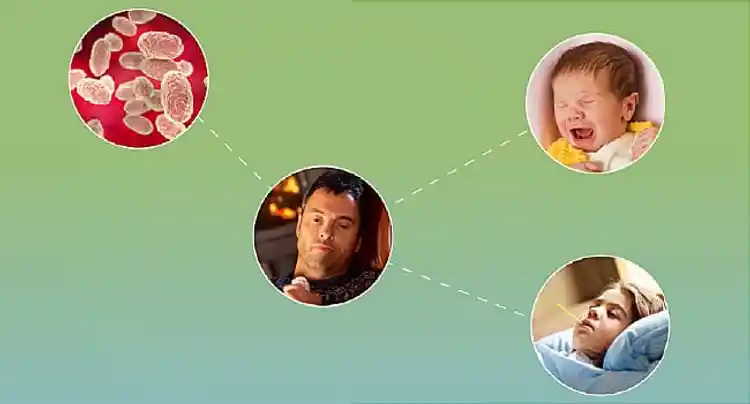How Whooping Cough Spreads

Hide Video Transcript
Video Transcript
SPEAKER
If you have a severe cough that doesn't seem to go away, you may have whopping cough. Whooping cough, or pertussis, is a highly contagious bacterial infection that affects your lungs and airways. Pertussis spreads through airborne droplets that are released when an infected person coughs or sneezes. The bacteria can travel up to 6 meters-- 20 feet-- when coughed up and can live up to two days on objects and surfaces. People who spend prolonged amounts of time in close quarters, such as co-workers and family members, are more likely to be infected. An infected person is most contagious during the first two weeks after symptoms appear. After two weeks of incubation, bacteria collect inside the trachea and release toxins that irritate and inflame the airways. This causes uncontrollable coughing bouts followed by gasps for air and can last for minutes at a time. The infection itself can last over three months.
If an adult has it, whooping cough can be transmitted to children too young to have been fully vaccinated, such as babies or teenagers and adolescents who have lost immunity. Whooping cough is easily preventable with vaccines. It's especially important to be vaccinated if you're around babies. In infants, whooping cough can cause serious complications or even be fatal. The DTAP vaccine, a combined vaccine for tetanus, diphtheria, and pertussis, is available for children, while the TDAP vaccine is recommended for adults and adolescents every 10 years to boost immunity against whooping cough. For more information, talk to your doctor.
[MUSIC PLAYING]
